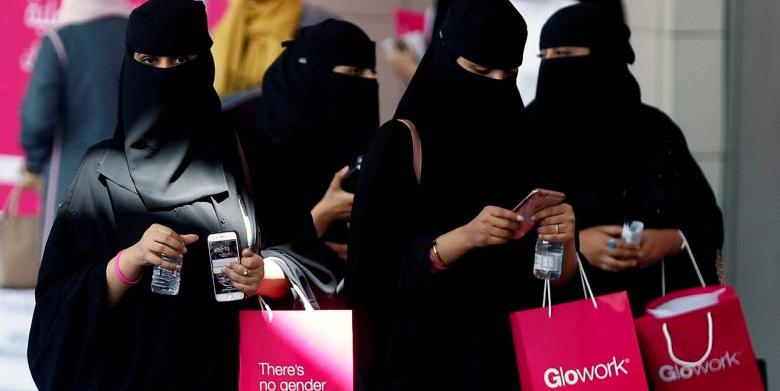Alwaght- In recent days, the women in Saudi Arabia have been given some social freedoms that are much vaunted by propagandist Saudi media that describe the relaxation as a huge change.
The so-called “big change,” as the Saudi media call it, reflected itself in this week's announcement of King Salman who gave the women the right to drive, go to the stadiums, and attend clubs where they can have their time to spend.
But to what degree these reforms are real and can effectively help guarantee the rights of the Saudi citizens, especially women? There is another significant question: What is Crown Prince Mohammad bin Salman and other Saudi leaders seeking behind their highly-promoted reforms at the present time?
The Saudi monarch's authorization of the women driving is an outcome of the changes to the power structure and the unavoidably consequent need for introducing economic reforms that remained unimplemented until now. The lifting of the ban on women driving, a social demands raised especially in the recent years mainly by social activists, comes along with other social freedoms including the right to attend stadiums, vote, be member of the country’s advisory councils, and also be candidate for the local elections. These changes are seen as playing a crucial role in success or failure of the kingdom’s hasty and top-down reforms.
Meanwhile, the crown prince has recently been facing opposition from popular classes as well as the royal family rivals. The reform is mainly prompted by bin Salman's struggle to attract public opinion’s backing. In fact, the crown prince, who has had difficulties taking place of the former Crown Prince Mohammad bin Nayef, sees it a need to introduce the hurried and largely demonstrative changes in a bid to persuade the women and the youths to stage support for him as he knows that these two social groups carry demands and challenging discontent. Therefore, lack of domestic legitimacy beside spirited royal infighting over the power succession mechanism that helped bin Salman rise to heirship are the key drives motivating the impulsive decisions on some women’s rights that since the kingdom’s foundation have been suppressed but are now restored on the strength of political expedience.
Beyond these reformatory gestures, the kingdom is in need of fundamental economic and political reforms that remain unaddressed. Low oil prices in the global markets that in the recent years compelled the government’s adoption of austerity measures have immersed the Saudi economy in recession. Riyadh’s foreign reserves are now in their lowest levels as Saudi leaders continue spending huge money on the war. The interventionist policy and adventures in Yemen, Syria, and Bahrain, buying allies in the face of Iran, and appeasing the US by signing huge arms deals have shut down many economic projects, something in return resulting in increasing unemployment.
All these indicate that true economic reforms are primary to the show reforms, despite the fact that the young heir seeks covering up such a need.
The necessary political reform is another area where, according to the experts, Saudi Arabia needs real change. While the global monarchies are majorly constitutional, the Saudi monarchy remains absolute. The regime’s backwardness, which sometimes like now forces the government to make social concessions, is blamed for the people’s rights infringement. Many analysts link the social discontent and questioned political legitimacy to the absolute and undemocratic political system. In Saudi Arabian people are devoid of the right to vote and the right to determine fate. Political parties, as a must for a real democracy, are not allowed to form and work. There is no separation of powers. There is no such thing as distribution of power. Power monopoly and the resultant corruption, discrimination, and social gaps are main outcomes of such social system. The royal oligarchy itself approves law and implements it. This stirs the Saudi leaders' betrayal of Muslim world and appeasement of the West, despite the fact that the Muslim Saudi nation holds its antipathetic sentiments to the US, Israeli regime, and other adversaries of the Muslims. Absolute rule of the Saud family allows crackdowns and so silencing of the social dissent.
Focus on the demonstrative reforms and leaving behind the urgent ones stems from the royal rulers' unseriousness and failure to concentrate on real development. In fact, when concentration is distracted from chasing real development, the ground is prepared for less costly and time-taking social amendments.
Additionally, these reforms look quite unavoidable as social activism that promotes public protest is in the making. Launching the “September 15 Movement” is indicative of the growing pro-change inclinations in the Arab kingdom. The social movements, on the one hand a product of the critical social conditions and on the other hand a product of long years of repressive policy of the regime, gradually pave the way for political transformation in the oil-rich kingdom.
The demands and social activism are on the rise, and such a regime will have no justification of living on, and as history bears may evidences finally will collapse; or growing pressures by the pro-democracy groups, lack of outlooks for genuine political and social reforms, sham social reforms, lack of capacity to meet the women and youths' demands, and wasting money on huge weapon purchases would make the monarchy susceptible to sweeping crises.



























